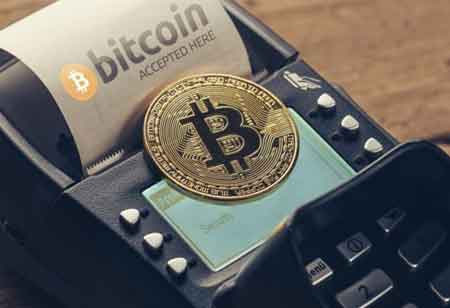THANK YOU FOR SUBSCRIBING
6 Benefits of Paying with Bitcoins
Bitcoin users can send and receive bitcoins from smartphones or computers. Therefore, it is easily accessible for those without access to banking systems, pay cards, or other modes of payment

By
Apac CIOOutlook | Monday, August 17, 2020
Stay ahead of the industry with exclusive feature stories on the top companies, expert insights and the latest news delivered straight to your inbox. Subscribe today.
Bitcoin users can send and receive bitcoins from smartphones or computers. Therefore, it is easily accessible for those without access to banking systems, pay cards, or other modes of payment
Fremont, CA: Founded in 2009 by Satoshi Nakamoto, Bitcoin is a decentralized peer-to-peer cryptocurrency system designed to enable users to transact digital units of exchange called Bitcoins (BTC). This network has dominated and defined the cryptocurrency space, generating a multitude of altcoin followers and depicting an alternative to government fiat currencies and pure commodity currencies for many users.
The primary feature of bitcoin is that it is not controlled or regulated by any central authority. The payments are processed through a private network of computers linked through shared ledgers and recorded in a blockchain on the computers that updates and informs all accounts. The blockchain takes the role of a distributed ledger and eliminates the need for a centralized system to maintain the records.
Unlike fiat currencies issued by a government, bitcoins are mined by a computer through a process of solving complex mathematical algorithms. This is to verify the transaction block that needs to be added to the blockchain or purchased with standard national money currencies and placed into a bitcoin wallet, accessible through a smartphone or computer.
Here are six advantages of paying with bitcoins:
Peer-to-Peer Focus
The bitcoin payment system allows users to send and receive payments to or from anyone on the network globally without the need for approval from any external source.
User Autonomy
One of the main principles of cryptocurrencies is autonomy, and it has been a significant feature of bitcoin for users too. These currencies allow users to have autonomy over their own money and control how they spend it without dealing with authority like banks or governments.
Elimination of Banking Fees
Although it is a standard for cryptocurrency exchanges to charge maker and taker fees and sometimes deposits and withdrawal fees, bitcoin users do not have pay any kind of fees or charges as opposed to traditional banking fees in terms of fiat currencies.
Mobile Payments
Bitcoin users can pay for their coins anywhere as long as they have access to the internet without having to go to a bank or store to buy products without filling out personal information to complete the transaction.
Low Transaction Fees for International Payments
As bitcoin transactions have no external or government involvement, the transaction cost is low, unlike wire transfers and foreign purchases, which involves fees and exchange costs. Also, bitcoin transfers are quick, which reduces the inconvenience of usual authorization necessities and wait periods.
Discretion
Bitcoin transactions are discrete, and the purchases are never associated with the user’s identity and cannot be easily traced back to him. The bitcoin address generated for user purchases changes with each transaction, making it harder to be liked with personal identity, unlike other forms of payment.
See also: Top Bioinformatics Solution Companies





